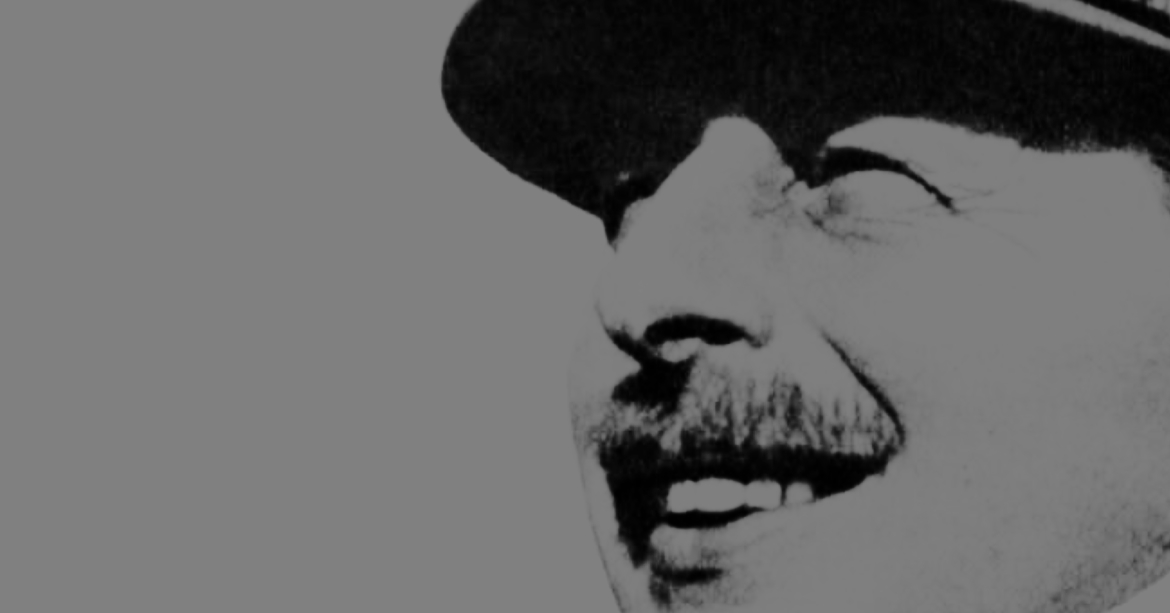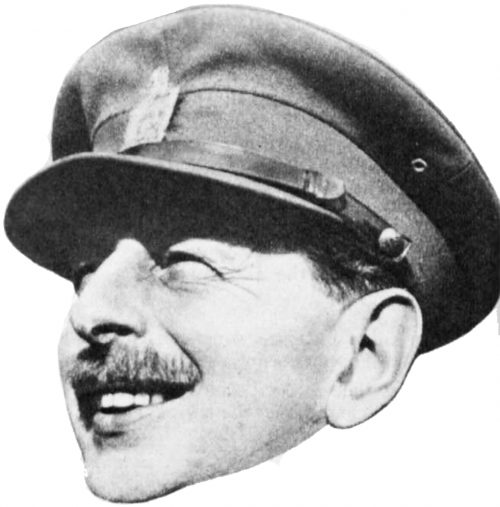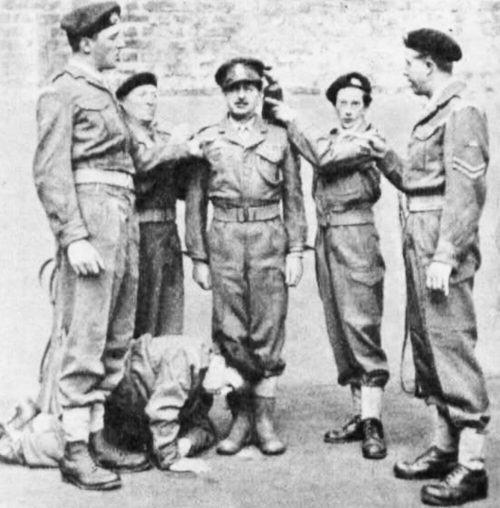If you want a quiet life, be a corporal
That’s the view of Major (late Col.) Upshot-Bagley


GEOFFREY SUMNER speaking: “In various ways, these TV soldiers that I command once a fortnight remind me of some of the real soldiers I had under my command during the war.”
Geoffrey is, of course, the light comedy actor whom viewers know as Major Upshot Bagley, dithering commanding officer of The Army Game depot, Nether Hopping, on ITV screens again next Wednesday.
What most viewers do not know, is that Sumner ended World War II as a full-blown Colonel.
I had arranged to meet him to hear about his two Army careers, wartime and TV, and the three Sumners — Mr., Major and Colonel — paraded in the cocktail bar prompt on time.
“One of the TV privates keeps on asking questions,” he said.
“It reminds me of a gunner who gave me a lot of trouble.
“He was taking part in gun drill and wanted to know why No. 2 man had to stand in the way of No. 3 man and raise his hand to shoulder level.
“I didn’t know the answer, and eventually this problem got back to the War Office, with the result that some time and motion study fellows arrived.
“They found that the gun drill had not been revised since the days of Napoleon, and the reason No. 2 had his arm raised was to hold the reins of the leading horse.
“Then we have in the TV Army one of the brainless types. I met some of those, too, and, being quite frank, I didn’t take too kindly to them during the war.
“Our wartime circumstances were far from funny, and a foolish mistake might have cost all our lives. I’m afraid I was rather severe — used to frighten the daylights out of them.
“The brainless ones came in two categories: intentional and unintentional. The former got jumped on, and the chaps who couldn’t help it were sent to the cookhouse and elsewhere.
“At the other extreme we had the ‘fly boys’ — very similar to our TV Corporal Springer. We had a bombardier who was the image of Springer and was wonderfully useful. He made our dump nice and comfortable. I would far rather have a ‘fly boy’ to command than a nit wit.
“For one thing, they know how to make the best of what there is available, and as long as the benefits are coming in they are an asset. You need to watch them, though.”
While Geoffrey was telling me this I was wondering what his great-grandfather would have thought of him becoming an actor. Probably, he would have been horrified, because great-grandfather was an Archbishop of Canterbury. At the same time, another relative was Bishop of Winchester.
“Ours is an old Devonian family,” Geoffrey said. “On one side we are strong Church people. On the other we are Army. I have a cousin who is a brigadier and I don’t think there is much doubt that he is destined to become a general. I envy him quite often.
“And — forgive me if I’m boring you — Sir Francis Drake was an ancestor.”
About his career Geoffrey Sumner said: “As a boy, the RAF turned me down on medical grounds, so I went to study farming in South Africa. I became a farm manager, and eventually had my own farm of 800 acres.
“That was fine — until one night a tropical hail-storm smashed my crops and future. So I came back to England and, in a roundabout way and without any training, started in the theatre.
“Today, I live with my wife, Mary, and our three girls — Victoria, 17, who is a fine horse-woman and pianist, Alexandra, eight, and ‘Charlie,’ four.
“Notice something about the girls? All named after queens. To complete the family we have a Boxer dog, 12 cats and appropriate number of kittens, two horses, budgerigars, chickens and pigs. Home is a 10 acre small holding near Upper Warlingham, and the house dates from Charles I.’
Geoffrey Sumner takes his farming seriously. Recently he had 350 pigs, including some prize winners, but has sold most of them. He is starting again in earnest later this year. Throw in membership of the local branch committee of the National Farmers’ Union, and that would seem enough to keep any man busy.
But not Geoffrey. He also finds time to work as managing director of a cartoon film studio employing 75 artists and technicians.
His toothbrush moustache reminded me that it was the military Sumner I had wanted to interview, not the businessman or farmer.
“I always had a yen for the Army and I never really lose it,” he admitted. “I still have the Army in my blood. You hear criticisms of Army life, but there is a lot to it. There is the ‘bull’ and the red tape and other nonsense, I agree. But my view is that any profession which enables you to make life-long friends is worthwhile.
“On the lighter side, I remember my first command on the south coast, near Dymchurch. We had two naval guns and nobody knew how to fire them accurately. When we practised, we nearly blew the target towing ship out of the water.”
One of his many jobs called Geoffrey Sumner away — but not before I asked him what rank he considered the best in the Army.
“If you want a quiet life with most of the advantages, there is nothing to rival a corporal,” he said.
Now, I wonder what Corporal Springer would say to that?





